Ten years ago reading and following TechCrunch was my thing. I happened to be again in San Francisco for a couple of weeks. During these days I learnt that TechCrunch Disrupt conference happens while I am there. Thanks to my friend’s connections, I got an opportunity to attend it for free.
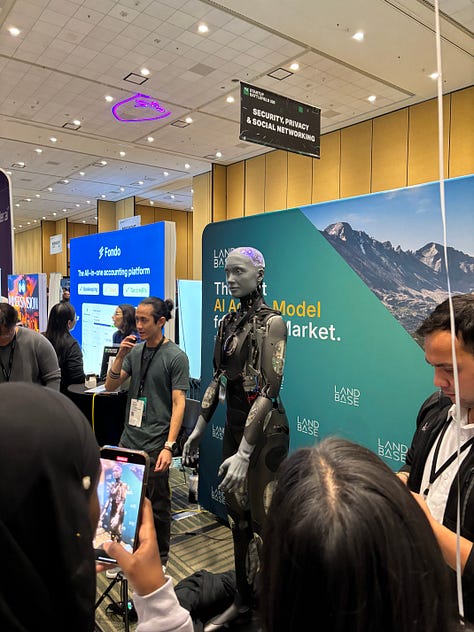
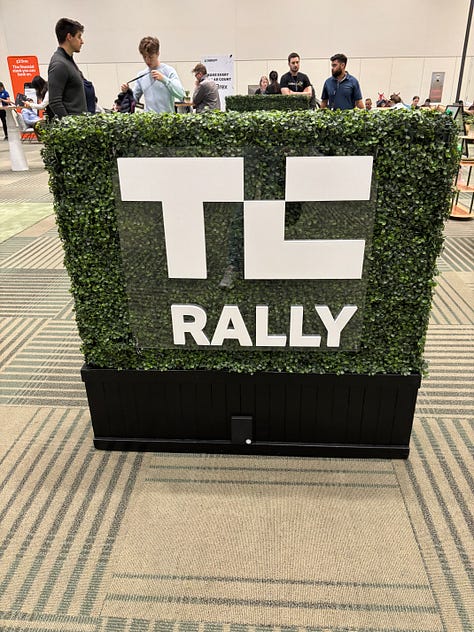
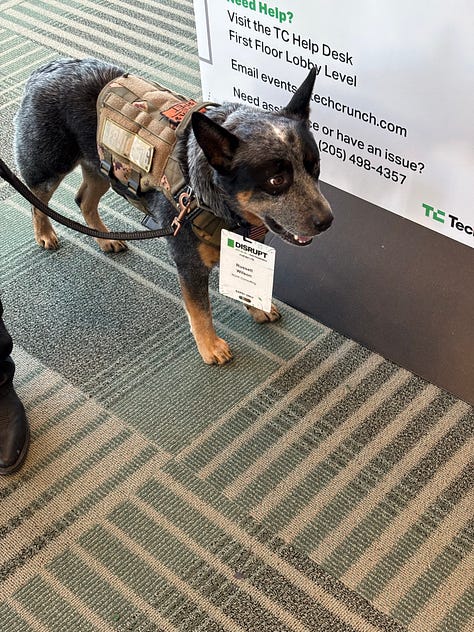
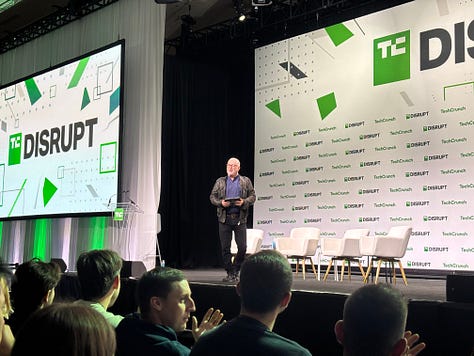
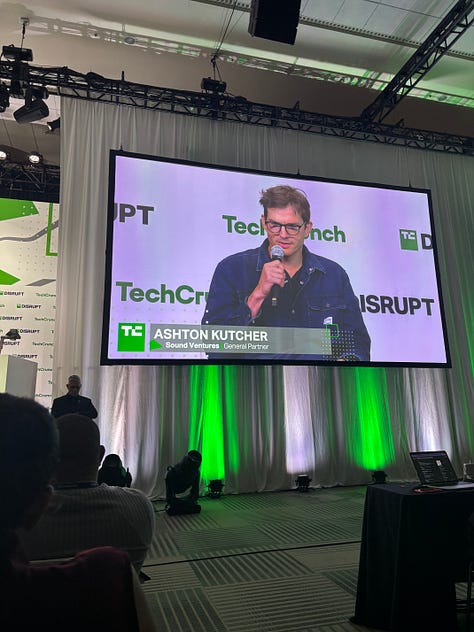
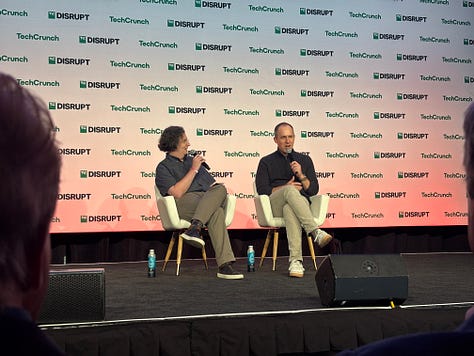
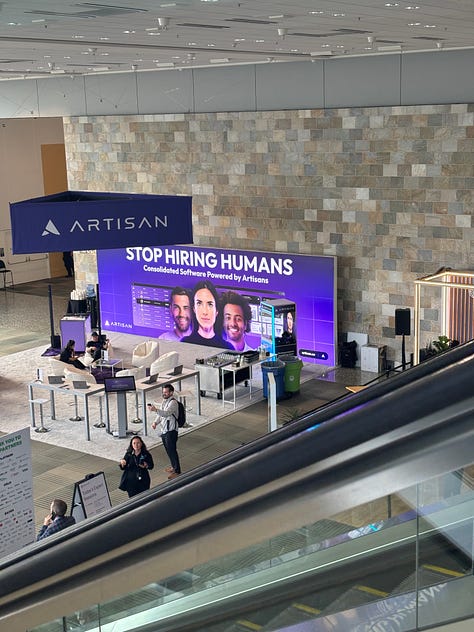
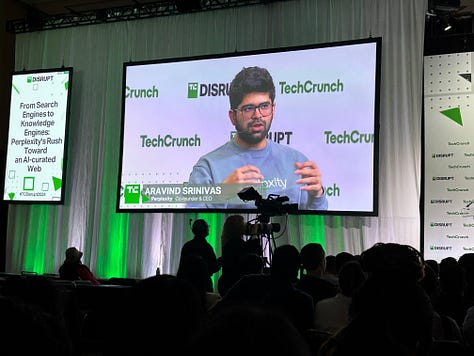
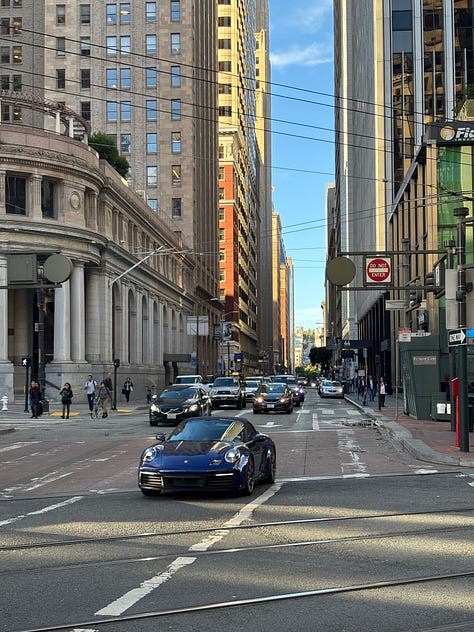
Observations
There are a lot of startup founders, some investors and funds, a little bit of people who “made it“ and share their stories on the stage. There is a collection of people who came to get inspired, or to find a job. In which group am I?
Major companies are mostly not present (e.g. I have not seen here Nvidia, Meta, OpenAI, Anthropic, Tesla, etc). There are booths by Google Cloud and MongoDB.
Most of discussions are around AI. Some discussions are about energy, climate, sales, cyber security, open source, etc. But mostly AI.
Ashton Kutcher was in one of the panels representing Sound Ventures together with Guy Oseary. Guy, shared that he used to search for rock stars in creative industry, while together with Ashton they currently search for entrepreneurs. While previously I have heard an analogy of tech entrepreneurs as rock stars of our generation, but it was a new idea to me, that the approach to find them can have some similarities as well. Ashton mentioned that he does not remember pitch decks of most of the great companies he has invested in, it was mostly about getting inspired and excited about the “magic moment“ around the idea. Both Ashton and Guy mentioned they love Jony Ive. Or I have to say Sir Jonathan Paul Ive.
I have seen a dark grey sweater with a short zipper on top on one guy. I loved how it looks and I thought I need to buy one for myself.
There were few security dogs at the entrance to the venue. I experienced a lot of affection towards one specific dog which sniffed my bag. I feel we connected.
Very poor quality food and drinks. I bought a sandwich in plastic packaging and I paid $19.01. I paid $7.81 for a very poor cappuccino. Poor by quality, not the price.
The company which optimises sales Artisan, had a booth with a controversial slogan: “Stop hiring humans“. Few people discussed it. As they say, there is no bad PR.
Carl Pei is a former co-founder of OnePlus (I used to have their phone back in the days), and currently is a cofounder of Nothing (they produce smartphones and headphones). He mentioned as well that currently he is very bullish on India (they produce phones there, and this is the major market for them). Someone asked, what gives Carl strength to work in this super competitive space. He mentioned that before 2007 BlackBerry and Nokia dominated the space and everyone thought they will stay forever. Now people think about iPhone and Android phones as they are here forever. He believes (with a reference to Roman Empire) that countries, companies, and products which people think will stay forever (or a very long time), everything will fall eventually, outcompeted by emerging players.
Have seen a humanoid robot (the first picture above). What blows my mind is that mind blowing things like this are so common now, that it does not blow the mind.
Few people shared that at early rounds of investment (e.g. pre-seed) the evaluation is defined purely by the past experience of the founder (e.g. did they have an impressive exit before, did they do something impressive in life, did they have a very competitive position) and traction is close to irrelevant. At later rounds (e.g. Series A) the traction becomes super relevant, and the past experience of the founder loses its relevance.
I got a google spreadsheet with contact details of a lot of investors who attended the conference. I was pleasantly surprised to receive this list.
The closing session was an interview with Perplexity CEO Aravind Srinivas. He was grilled. I found the interview very passive aggressive. May be I am very thin-skinned, but I felt uncomfortable watching this session. I don’t know what the TechCrunch editor had in mind doing the interview in such aggressive manner. I hope Aravind does not take it personally.



